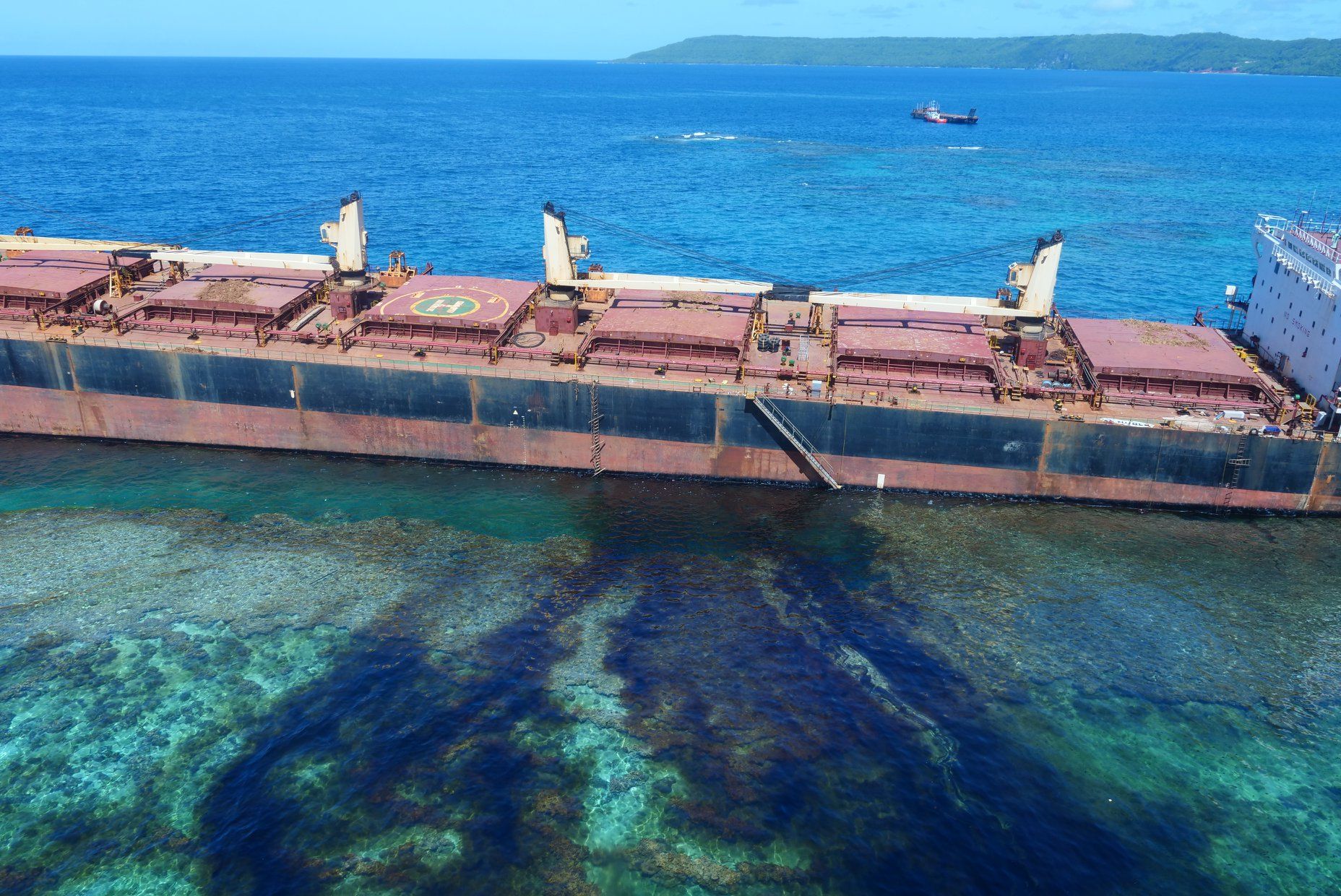
Last month, a large cargo ship ran aground in the Pacific near a UNESCO World Heritage site. It began to leak large quantities of oil in what officials have now described as a gradually worsening environmental disaster, The Associated Press reported.
The 740-foot MV Solomon Trader—which was carrying bauxite, an ore used to make aluminum—became grounded on a coral reef off Rennell Island (part of the Solomon Islands) on February 5 during a cyclone.
So far, the response to the accident has been slow, and the government of the Solomon Islands has asked for help from Australia—which lies about 1,200 miles to the southwest—to for help in dealing with the spill, as it does not have the capacity on its own.
Australian experts have estimated that around 80 tons of oil have now leaked into the pristine waters and beaches of Rennell Island. Worryingly, the spill is approaching the southern portion of the island, known as East Rennell, which is the largest raised coral atoll in the world and a designated UNESCO heritage site.
The situation is set to worsen, as more than 660 tons of oil remains on the Solomon Trader ship with a high chance that it will leak into the ocean, according to Australia's Department of Foreign Affairs.
The government of the Solomon Islands said the companies that chartered and owned the ship bear responsibility for salvaging the vessel and handling the environmental impact.
Disaster for the coral reefs of Rennell Island, Solomon Islands as the 225m long MV Solomon Trader aground on reef starts leaking oil. Images captured by @planetlabs satellites pic.twitter.com/oCHbah1wiV
— Murray Ford (@mfordNZ) February 25, 2019
The Hong Kong-based owner said it had sent a team to help with the salvage operations, Radio New Zealand reported, according to the AP. However, Bintang Mining Ltd.—the Indonesian firm that chartered the vessel—said it is not liable for the accident, as it was not the operator.
Furthermore, Bintang has continued to load bauxite from its mine in the Solomon Islands onto other cargo ships, churning up the spilled oil in the process and hampering clean-up operations, The Guardian reported. The Solomon Islands government was expected to issue a demand that the company ceases operations, according to the outlet.
Australia's Department of Foreign Affairs said that it was "profoundly disappointed" by the nature of the response from the companies that should be dealing with the spill, AP reported.
Meanwhile, the Australian High Commission for the Solomon Islands said it would help the island nation "hold the responsible parties to account for this disaster," The Maritime Executive reported.
UNESCO has said it was concerned about the environmental impact of the spill and was assisting the Solomon government, which is likely to take several months.
Uncommon Knowledge
Newsweek is committed to challenging conventional wisdom and finding connections in the search for common ground.
Newsweek is committed to challenging conventional wisdom and finding connections in the search for common ground.
About the writer
Aristos is a Newsweek science reporter with the London, U.K., bureau. He reports on science and health topics, including; animal, ... Read more
To read how Newsweek uses AI as a newsroom tool, Click here.






